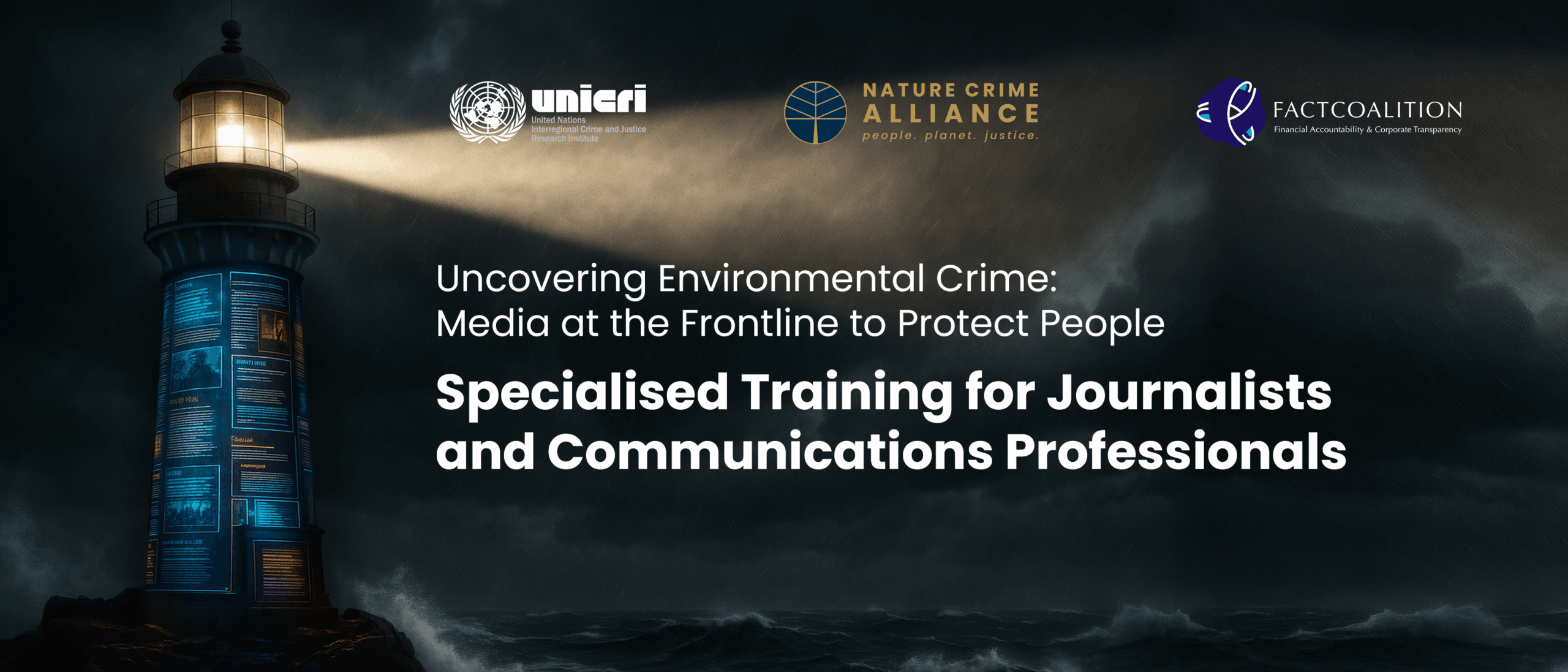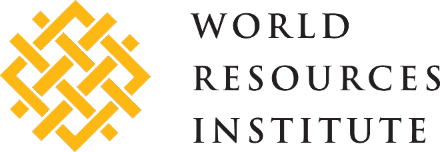Uncovering Environmental Crimes: Online Training for Journalists and Communications Professionals

The Nature Crime Alliance Secretariat is partnering with Alliance members the United Nations Interregional Crime and Justice Research Institute (UNICRI) and the Financial Accountability and Corporate Transparency (FACT) Coalition to deliver a free environmental crime training programme for journalists and communications professionals.
Environmental crimes, such as illegal mining, logging, fishing, and wildlife trafficking, are among the most complex and rapidly evolving forms of criminal activity today. They often span multiple jurisdictions, involve transnational networks, and intersect with other serious crimes such as corruption, fraud, and trafficking. The impacts are far-reaching: from accelerating climate change and biodiversity loss to threatening public health, security, and the livelihoods of vulnerable communities. Despite their severity, these crimes are often underreported or misunderstood.
Accurate, responsible, and well-informed journalism plays a crucial role in uncovering environmental crimes, raising public awareness, and holding perpetrators to account. Supporting media professionals with the tools and knowledge to report on these issues is essential to promoting transparency, strengthening environmental justice, and fostering effective policy responses.
Deepen understanding of nature crime
To this end, the Nature Crime Alliance Secretariat, FACT Coalition, and the United Nations Interregional Crime and Justice Research Institute (UNICRI), in collaboration with key Alliance members and media associations, will deliver a free training programme for journalists and communication professionals (press officers, social media managers, institutional communicators, and other communication professionals ). The course, which will convene online across three half-days between 29 September and 1 October 2025, will focus on environmental crimes that pose growing safety and security risks around the world, offering a multidisciplinary approach to understanding their dynamics and improving media responses.
The training will explore how organised criminal networks profit from and facilitate nature crimes, and will examine the financial mechanisms that support these operations- such as money laundering, corruption, and the abuse of secrecy jurisdictions. Participants will gain practical insights into tools and approaches drawn from intelligence analysis, financial journalism, and conservation criminology. They will learn to use scientific data, digital tools, and open-source technologies to track crime patterns, monitor environmental harm, and inform evidence-based storytelling.
Build contacts
Through practical sessions, participants will also strengthen their ability to conduct interviews with diverse sources – including scientists, prosecutors, law enforcement officers, and environmental defenders – while maintaining ethical and professional standards. The course will further address the growing threat of disinformation in environmental reporting and offer strategies to identify and counter false or misleading narratives.
By the end of the course, participants will be better equipped to investigate and report on local and global environmental threats with rigour, clarity, and impact. The training also seeks to build lasting connections among participating journalists and experts. In the spirit of applying the skills acquired, participants will be encouraged to develop a story or media product on environmental crime within the year following the course. A certificate will be awarded upon full completion of the training.
For more information or to express your interest in the training, please contact marina.mazzini(at)un.org

